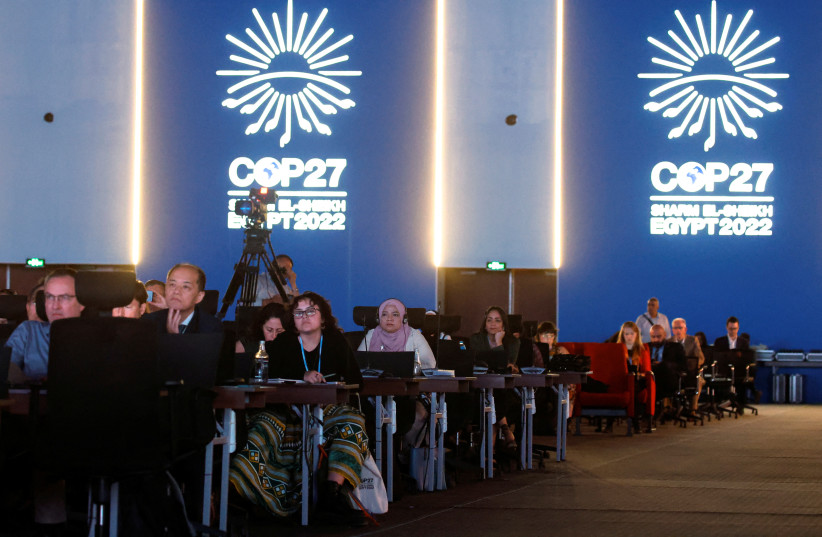Three University of Haifa scholars gave presentations on assessing climate vulnerability in multicultural urban settings to the first-ever Israeli pavilion at the United Nations Climate Change Conference (COP27) on Thursday in Egypt.
The research focused on climate-related social vulnerabilities and the risk of extreme heat in Haifa, Israel’s third-largest city and known for its mixed Jewish-Arab population.
Furthermore, the presentation harnessed on knowledge for collaborative climate resilience in Shefa-'Amr, reflecting the research team's study project led by The Galilee Society in collaboration with the University and the local authority of Shefa-‘Amr - an Arab city in Northern Israel. The project represents the first attempt at a climate change adaptation plan for an Arab city in Israel.
“Most of the local authorities in Israel do not have a climate adaptation plan and it is still not a priority locally, but cities are already affected and vulnerable populations are at higher risk."
Maya Negev, University of Haifa
“Most of the local authorities in Israel do not have a climate adaptation plan and it is still not a priority locally, but cities are already affected and vulnerable populations are at higher risk,” Dr. Maya Negev, who gave the presentation alongside Prof. Shlomit Paz, said.
“Arab municipalities have the same challenges as Jewish cities but have many other priorities including combating violence and crime.
Accordingly, climate change is not on their agenda. However, we believe that adaptation to climate change can be integrated into solving other problems as well. We should work in a participatory manner with residents and municipalities to develop a plan that suits their needs, enhances their capacities and collaboratively builds climate resilience.”

Meanwhile, the survey conducted in Haifa found that the city’s downtown area is more susceptible to heatwaves and that less affluent areas have gaps in access to the energy resources that would enable them to combat extreme heat by using air conditioners.
Additionally, Dr. Negev noted that poorer cities and neighborhoods in Israel have fewer trees, which serve as protectors against climate change by providing shade, reducing the urban heat and contributing to well-being.
“These cities are more exposed to heat — and heat kills. It is one of the top reasons for climate-related deaths in the world. Additionally, people who can't exercise or move around their city due to extreme heat are susceptible to suffering health-related consequences such as diabetes and obesity and loneliness,” Dr. Negev said.
A third University of Haifa scholar, Prof. Ofira Ayalon, gave her lecture on climate change using the city of Tel Aviv.
She discussed the implications and costs associated with not properly incorporating adaptation measures to account for the future impact of rising temperatures and heat waves associated with climate warming.
The study provided calculated projections for the cost of inaction and predicted that the city will suffer a NIS 2 - 4 billion loss by 2050 if it does not take the matter more seriously.
What is COP27?
The United Nations Climate Change Conference, better known as COP27, is an entire world within one city. People of every shape, size and color attend the event, taking buses to planes to taxis to shuttles to get into the 40,000-person affair.
One hundred forty of those participants were world leaders, many of whom made themselves quite accessible to the delegations that showed up at the event in Sharm e-Sheikh.
Shanna Fuld contributed to this report
The Environment and Climate Change portal is produced in cooperation with the Goldman Sonnenfeldt School of Sustainability and Climate Change at Ben-Gurion University of the Negev. The Jerusalem Post maintains all editorial decisions related to the content.
